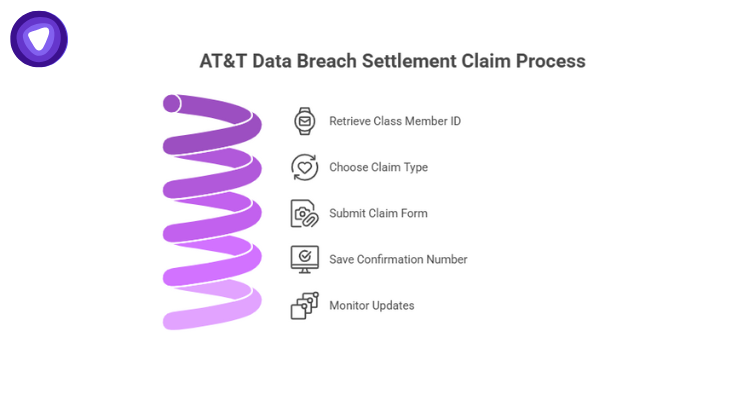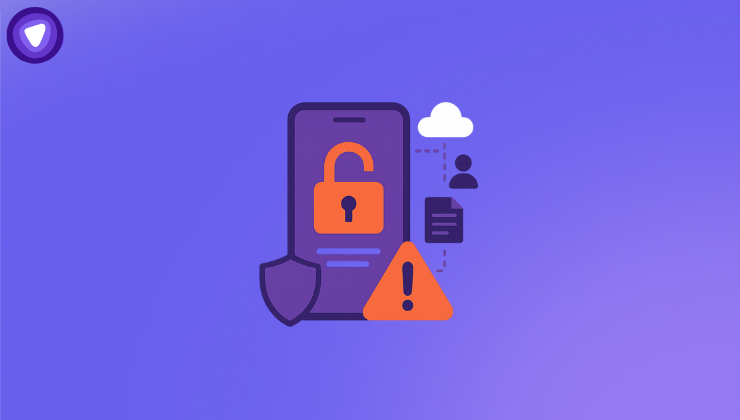- Settlement Value and Scope: AT&T agreed to a $177 million settlement after two major 2024 breaches that exposed personal and call metadata of over 73 million customers.
- Eligibility and Claims: Current and former AT&T users affected by the March or July 2024 breaches can file claims, with documented losses eligible for up to $7,500 and smaller payouts for verified exposure.
- Deadlines and Payout Date: The claim deadline is December 18, 2025, and payouts are expected to begin in early 2026 following final court approval on January 15, 2026.
- Security Lessons: The breaches highlight the risks of poor vendor oversight and fragmented data systems, emphasizing the need for centralized access control and strict monitoring of third-party privileges.
- Business Insight: Solutions like PureVPN White Label with Dedicated IPs and Dedicated Servers can help businesses prevent similar vendor-related data leaks by isolating sensitive workloads and ensuring full network visibility.
A few years ago, few expected one of America’s biggest carriers to face back-to-back breaches exposing both personally identifiable information and call metadata. Yet that’s exactly what led to the AT&T data breach settlement, now valued at $177 million.
This isn’t just another consumer compensation story. It’s a full-scale case study on what happens when vendor access, legacy databases, and cloud partners combine to create a global uproar. .
What Actually Happened and Why Two Breaches Matter

AT&T publicly acknowledged two separate incidents:
- March 2024: A dataset containing names, addresses, Social Security numbers, and other identifiers from roughly 73 million people appeared on the dark web.
- July 2024: A second breach through a third-party cloud environment leaked call and text metadata tied to customer accounts.
Both incidents triggered class-action lawsuits that were consolidated into a single settlement worth $177 million, without AT&T admitting fault.
The sheer scale pushed regulators and enterprises to reassess how identity data is stored, replicated, and shared across cloud partners.
The Official Timeline
With the full timeline now in view, the next question most AT&T users are asking is whether they qualify and how to make sure their claim counts before the deadlines close.
| Date | Event |
| Mar 30 2024 | First breach confirmed (PII exposure) |
| Jul 12 2024 | Second breach confirmed (metadata exposure) |
| Jun 20 2025 | Preliminary court approval of $177 M settlement |
| Aug 2025 | Class notices begin via email and mail |
| Nov 17 2025 | Deadline to object or opt out |
| Dec 18 2025 | Final date to file the AT&T data breach settlement claim form online free |
| Jan 15 2026 | Final approval hearing |
| Early 2026 | Expected AT&T data breach settlement payout date |
How the Money Breaks Down
While the payout tiers give a clear picture of compensation potential, eligibility rules determine who can actually claim these amounts and what proof is needed to qualify.
| Category | Maximum Individual Award | Requirements | Notes |
| March 2024 breach | $5,000 | Proof of documented loss (e.g., identity-theft costs) | Affects current & former customers |
| July 2024 breach | $2,500 | Proof of documented loss tied to metadata exposure | Involves Snowflake partner data |
| Both incidents | Up to $7,500 | Two separate claim forms + documentation | Combined eligibility possible |
| No documentation | Tiered pro-rata share | Verified exposure only | Payment size depends on total valid claims |
Who Is Eligible for the AT&T Data Breach Settlement

Anyone whose personal information was exposed in either the March 2024 or July 2024 AT&T data breaches may be eligible to file a claim, whether they’re current or former AT&T customers.
You qualify if:
- You received a notice via email or mail indicating your data was part of one of the breaches.
- You were an AT&T postpaid, prepaid, or business account holder between 2019 and 2024, whose information was stored in AT&T’s customer systems or its third-party vendor environment.
- Your name, date of birth, account number, address, or Social Security number appeared in the leaked datasets shared on the dark web.
Even if you no longer use AT&T services, you can still submit a claim as long as your records were among those exposed.
Those who can document financial loss, such as fraudulent transactions, credit-repair costs, or identity-monitoring expenses, are eligible for higher payments (up to $7,500 total). Others can file a no-documentation claim for a smaller but guaranteed share of the settlement fund.
How to File Your Claim

Filing for compensation is free, there are no lawyers’ fees or third-party costs required.
Step-by-step
- Visit the official AT&T data breach settlement website: telecomdatasettlement.com.
- Retrieve your Class Member ID from your AT&T settlement notice email or postcard.
- Choose one:
- Documented-loss claim: upload receipts, bank statements, police reports, or credit-monitoring costs.
- Tiered/no-documentation claim: confirm exposure only.
- Documented-loss claim: upload receipts, bank statements, police reports, or credit-monitoring costs.
- Submit the AT&T data breach settlement claim form online free before the December 18 2025 deadline.
- Save your confirmation number and monitor updates for payout notifications.
How the Payout Will Actually Work

The AT&T data breach settlement payout date depends on court approval and potential appeals. If approved on schedule in early 2026, payments will begin in phases later that year.
Payment method options (selected on your claim form):
- Digital payment via PayPal, Venmo, or ACH deposit
- Mailed check
- Prepaid debit card
Those with documented losses will be prioritized before tiered claims are calculated on a pro-rata basis.
What Most Coverage Has Not Explained
Understanding eligibility is only part of the picture, several key details about the payout structure and vendor accountability have been overlooked in most public discussions.
The real math behind “pro-rata” payouts:
Media outlets mention tiered payments, but few explain that if participation is high, checks may be small. If only 10 % of eligible users claim, average payouts increase significantly.
The credit-monitoring clause:
Even if you don’t claim money, AT&T must provide 24 months of identity-protection services, including dark-web monitoring for leaked data.
Vendor accountability:
The second breach stemmed from a third-party data-hosting provider, underscoring the need for vendor access controls and shared-responsibility oversight.
Security Takeaways for Business Leaders

The AT&T data breach settlement isn’t just a consumer story, it’s a critical lesson for business leaders rethinking how their teams manage data access and vendor oversight.
- Centralize access control: Fragmented systems multiply risk.
- Monitor vendor privileges: Restrict third-party access to sensitive customer data.
- Use Dedicated IP connections: Unique IPs improve traceability and reduce shared-network exposure.
- Document every login and data movement: Complete audit trails simplify incident response.
How PureVPN White Label Solution Can Save Your Business From This?
The AT&T data breach settlement underscores how shared access and cloud dependencies can trigger cascading security failures. When multiple vendors handle user data without strict isolation, one weak link can expose millions of records.
With PureVPN White Label Solution, providers can deliver secure, branded VPN services featuring Dedicated IPs and Dedicated Servers, without building backend infrastructure from scratch. This approach helps businesses isolate sensitive workloads, maintain clear visibility across user activity, and reinforce client trust in how their data is protected.
It’s a straightforward model for preventing the kind of vendor-linked exposure that cost AT&T millions.
Final Word
The AT&T data breach settlement is real, court-approved, and already underway. File your claim before the December 2025 deadline to ensure eligibility, and activate the free monitoring if offered.
For enterprises, this case is a reminder that ownership of access and network transparency matter more than ever. Using Dedicated IP infrastructure through a solution like PureVPN White Label can reduce exposure, simplify compliance, and protect the trust your brand depends on.


